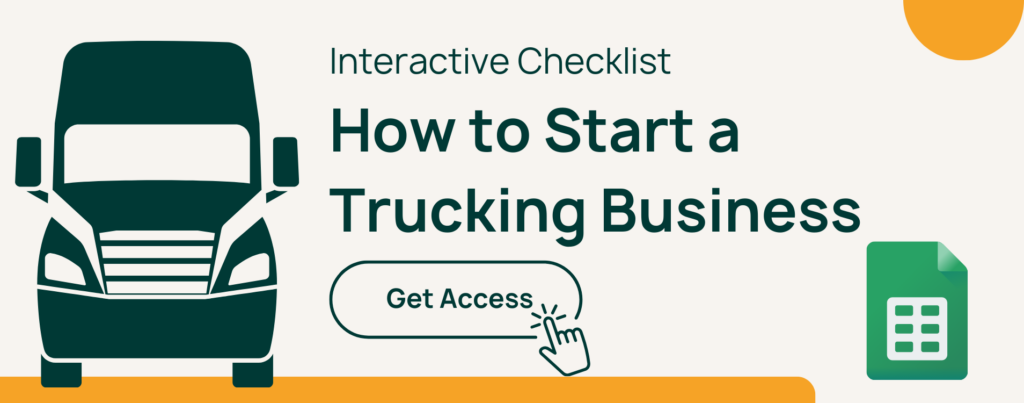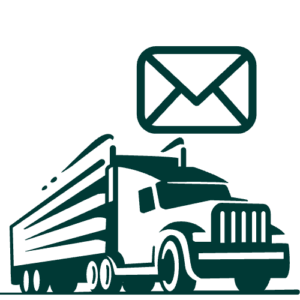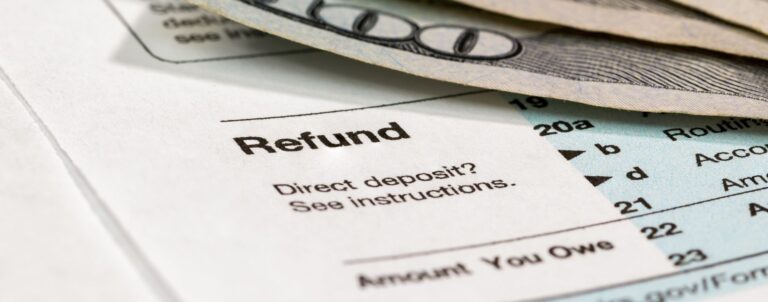If you’re starting a trucking company, or any company really, there are some bureaucratic tasks you need to check off your list. One of those is obtaining a federal tax ID number, also known as an EIN.
While it’s relatively easy to start a company in the US, it’s important to know the ins and outs of these processes to save time and money before your jump in.
Leer este artículo en español.
Subscribe to our YouTube channel for more videos!
What is an EIN?
EIN stands for Employer Identification Number. Also referred to as a Federal Tax Identification Number, an EIN is issued and used by the Internal Revenue Service (IRS) to identify your business. It’s like a social security number for your business and is used to associate all your tax information with the federal government.
Who needs an EIN?
Corporations, LLCs, and partnerships need an EIN. If you’ve set up your business as a sole proprietorship or single-member LLC and you will not hire any employees, you don’t need an EIN. However, if your business is a sole proprietorship and you’re planning to hire employees like drivers, dedicated dispatchers, or back-office staff, you should consider changing to an LLC or corporation. We walk you through the different legal structures for your trucking company here.
Regardless of your company’s legal structure, though, it is recommended that you obtain an EIN because it’s required to open a business bank account, get a business credit card, and hire employees. Having an EIN can also give your business more credibility and lower your risk of identity theft.

How to apply for an EIN
Before you can apply for an EIN, you first need to create your company. During the application process, the IRS will ask you for the date your company was established and its legal structure.
To start the application, go to the IRS website and select Apply for an EIN Online. Here is the information you’ll need
- Your social security number
- Your business’s mailing address
- The number of owners your business has (referred to as members in the application)
- The “responsible party” for the business: this is the person that will receive all information about the EIN and tax obligations.
Follow the prompts in five sections: Identity, Authenticate, Addresses, Details, and EIN Confirmation. When the application is complete, you’ll get your EIN instantly!
You can also apply by mail or fax, though the online process is the fastest and easiest way to obtain an EIN. The instructions for these methods can also be found on the IRS’s website.
Can I get an EIN as an immigrant?
Yes! According to Immigrants Rising’s Guide to ITINs, EINs, and Taxes, “all immigrants regardless of legal status are able to earn a living as independent contractors or start a business.”
If you don’t yet have a social security number (SSN) in the US, you can apply for one once you enter the country or apply for an immigrant visa.
If you don’t have access to a social security number, you can still get an EIN. You’ll need to submit a Form SS-4. You can hire a third-party designee, which is a US resident, or another business with good standing with the IRS. It’s recommended to choose your accountant as a third-party designee since they can then prepare your tax returns. However, you are not obligated to hire a third-party designee–you can submit a Form SS-4 yourself.
You may consider partnering with someone who does have an SSN because not having one can limit your access to other trucking industry services.
How much does it cost to apply for an EIN?
Obtaining an EIN is free. If you see any services advertised that charge you to get an EIN, they may be legitimate services that help you get your company started. They could also be scams. We recommend you go straight to the IRS website. Of course, hiring a third-party designee will be an additional cost. Accountants, lawyers, and other service providers’ prices vary greatly.
—
Getting an EIN is a critical step in starting a trucking company in the United States: it allows you to pay taxes and get access to financial services, including fleet cards which provide discounts on fuel and other expenses on and off the road. We covered owner-operator taxes in an article found here.

Article By
Keep Learning







